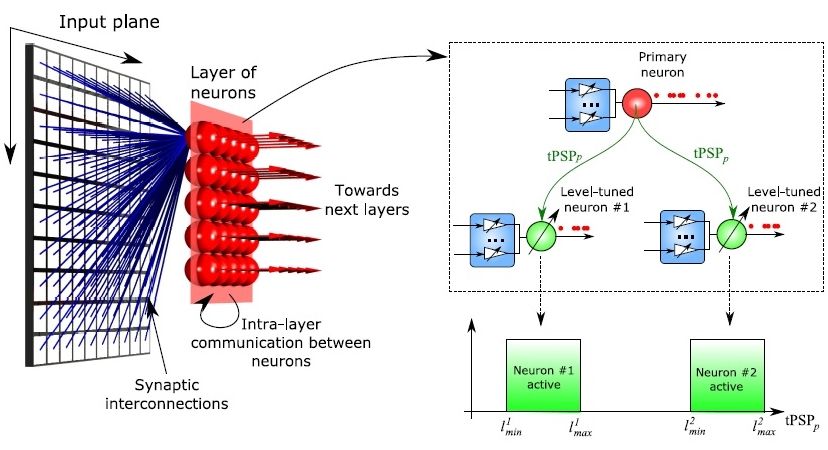(Phys.org)—When you hear a sound, only some of the neurons in the auditory cortex of your brain are activated. This is because every auditory neuron is tuned to a certain range of sound, so that each neuron is more sensitive to particular types and levels of sound than others. In a new study, researchers have designed a neuromorphic (“brain-inspired”) computing system that mimics this neural selectivity by using artificial level-tuned neurons that preferentially respond to specific types of stimuli.
In the future, level-tuned neurons may help enable neuromorphic computing systems to perform tasks that traditional computers cannot, such as learning from their environment, pattern recognition, and knowledge extraction from big data sources.
The researchers, Angeliki Pantazi et al., at IBM Research-Zurich and École Polytechnique Fédérale de Lausanne, both in Switzerland, have published a paper on the new neuromorphic architecture in a recent issue of Nanotechnology.

We have recently arrived at a practically identical solution and implemented it in a hybrid digital/analog chip. The rule is simple but very effective: if a neuron fires, it pulls its synapse levels in the directions of the levels that triggered it.
We also incorporated adaptive thresholding and lateral inhibition to ensure that the neurons are constantly working to encode useful and unique information.